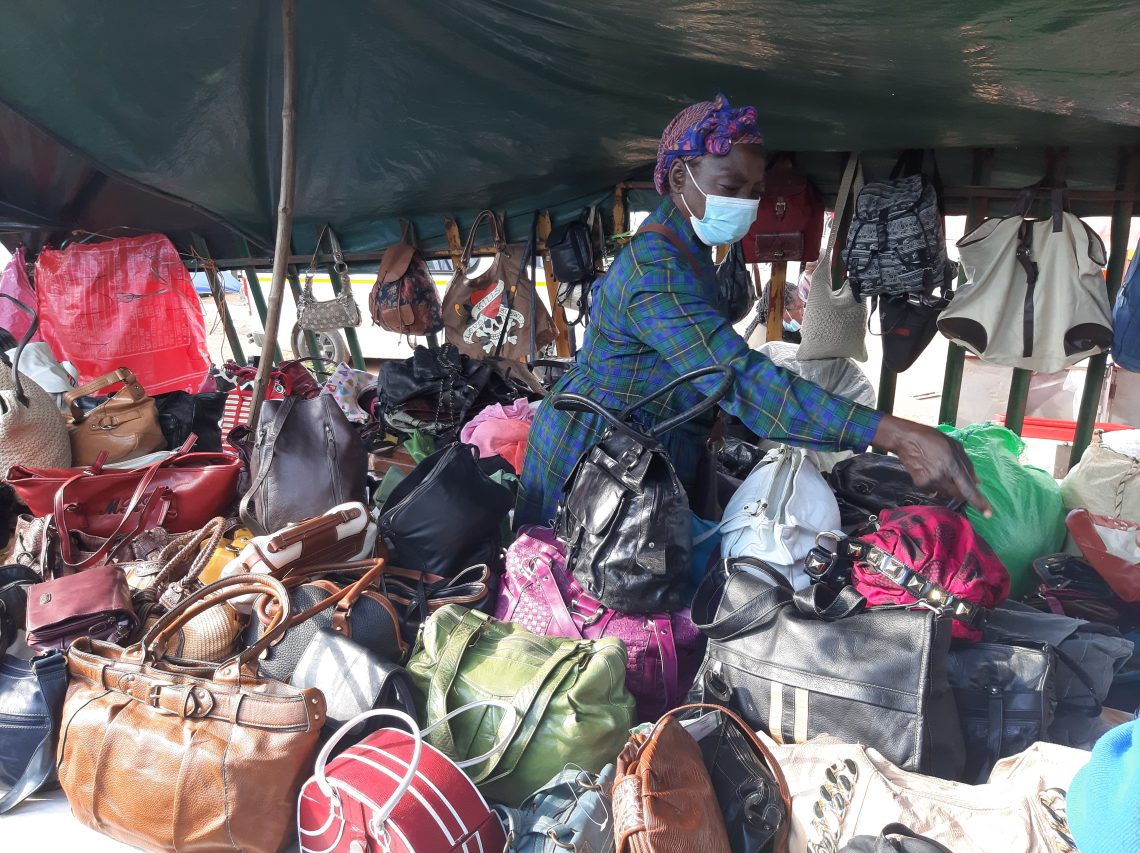Make your 2X MATCHED gift today!
This week only: Every $1 will be matched with $2 to enable women worldwide.
This week only: Every $1 will be matched with $2 to enable women worldwide.
Posted on 05/11/2022

Last year Grameen Foundation launched the DFS Innovation Prize to provide financial and technical assistance to fintech startups, mobile network operators, microfinance institutions, and any other financial service provider working in Eswatini. The goal was to either pilot or scale up digital financial service (DFS) platforms and products that address women’s business needs. Funding was provided by the American Bar Association Rule of Law Initiative under the USAID Women’s Employment for Economic Recovery project.
We received several applications for the Prize, and worked closely with local experts and government officials to select two prize winners.
Women make up 52% of the adult population in Eswatini, and a full 72% of adult women are self-employed, making rural women entrepreneurs a huge potential engine of economic growth for the nation. But the vast majority of women’s businesses remain small and informal, because Eswati entrepreneurs are unable to access credit to grow their businesses and improve their families lives. A 2019 study showed that only 12% of entrepreneurs in Eswatini were able to get a loan from a bank or MFI in the last year, and 57% were forced to rely solely on their own funds to finance their business. And women entrepreneurs are even less likely than men to receive loans.
Some of the key barriers to women’s access to credit in Eswatini are financial products that don’t meet their business needs and constraints, and the vast majority of banks in Eswatini are unwilling to take a risk on people who do not earn a steady salary. There are a few microfinance institutions in Eswatini that are willing to serve the rural woman’s market, but their reach is limited and their costs are high.
DFS has the potential to be a game-changer here. DFS allows nontraditional actors like fintechs and mobile network operators to deliver credit to people who cannot access them from formal banks. Digitalization (the adoption of digital technologies for savings and loan payments) also enables those smaller financial institutions, like microfinance institutions, to expand to new customers and reduce their costs of doing business.
And now, we’re excited to introduce you to our two DFS Innovation Prize winners! One is a local fintech startup and graduate of the Central Bank’s Fintech Sandbox. The second is a very well-respected local women’s microfinance institution that serves 37,000 women across the country.
Imbita Finance Trust
With over 30 years of experience, local microfinance organization Imbita Swaziland Women’s Finance Trust is the leading financial service provider for rural women in Eswatini, with over 7,000 low-income clients receiving savings, loan, insurance, and training products, and over 30,000 clients organized into women’s self-help groups. Imbita was founded by a group of Eswatini women in 1991 to eliminate the constraints that continue to trap Emaswati, particularly women, in the poverty cycle. In a country where only 8% of citizens and 7% of entrepreneurs have accessed credit from banks, Imbita is the leading provider of financial services to underbanked rural women. The majority of the women served by Imbita operate micro-businesses with just 1-2 employees, and operate their businesses directly from their home.
Imbita fills a vital need in the Eswati market by offering low-cost, customer-centered savings, loan, and insurance products to underbanked rural women. But Imbita’s reach is limited by the high costs of doing business.
Through the DFS Innovation Prize, Imbita is collaborating with MTN Eswatini to digitize their savings and loan repayments, and launch an entirely digital Quick Loan for their customers. Digitizing repayments will make it much easier for clients to access the world of Imbita’s services quickly and easily from their phones, without traveling to the organization’s branch offices. Digitization will also cut Imbita’s costs of doing business and enable Imbita to scale their services to additional clients at minimal costs.
Digimage Investments Proprietary Limited
Local fintech Digimage started up in 2014 and provides a range of digital solutions that meet the needs of businesses and end-users in Eswatini. Despite being a small business of young tech entrepreneurs, Digimage has been recognized by and managed to build strategic partnerships with many government and industry players since 2020. These include the Central Bank, Taiwan ICDF, and MTN Mobile Money.
Digimage has developed two promising digital financial services (DFS) products with the potential to improve access to financial services for rural men and women in Eswatini. The first product is called ePayNet, and the second is called iCredit. Both ePayNet and iCredit use the power of digital financial services to increase the impact and enhance the effectiveness of local women’s community savings and loan groups on women’s financial lies.
Up to now, ePayNet has only been available on smartphones. But it is essential to reach lower-income rural people, who often lack Internet access. That is why through the DFS Innovation Prize, Digimage is modifying both of their apps to work on non-Internet enabled phones. So what does that mean? Any rural woman with a simple Nokia, Tecno or iTel phone will be able to save with her savings group or SACCO, repay loans and request a quick loan quickly and easily from the convenience of her own home.
Learn more about Imbita Finance Trust
Learn more about Digimage Investments Proprietary Limited